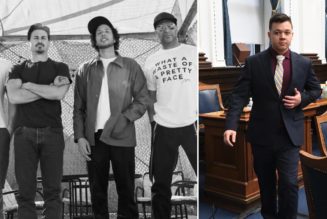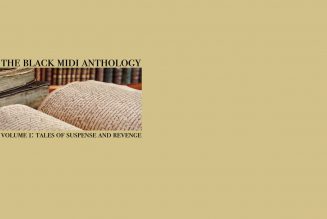The Weeknd is not satisfied with the Recording Academy’s decision to eliminate almost all secret committees responsible for nominating artists for the Grammy Awards. Despite calling for that very change in March, the artist born Abel Tesfaye is doubling down on his Grammy critiques, telling Variety that the rule changes are an “admission of corruption.”
Tesfaye’s crusade against the Recording Academy actually began last year, when he was shut out of all Grammy categories despite releasing one of the most critically-lauded, commercially-successful albums of 2020 in After Hours. His rhetoric escalated in March when he announced a Grammy boycott, explaining, “Because of the secret committees, I will no longer allow my label to submit my music to the Grammys.”
Well, the Grammys did away with just about all the secret committees last week, keeping them for a small number of the craft categories (packaging, producer, and liner notes) but opening everything else to a straightforward peer-to-peer vote. It might have been meant as an olive branch to The Weeknd, but Tesfaye has declined the gesture.
Related Video
“I think the industry and public alike need to see the transparent system truly at play for the win to be celebrated, but it’s an important start,” he said. “I remain uninterested in being a part of the Grammys, especially with their own admission of corruption for all these decades. I will not be submitting in the future.”
To be clear, the Recording Academy did not admit to decades of corruption. The nominating committees began in 1989 as a group of experts dedicated to the classical — and later jazz — musical categories. But in 1995, after the Grammy voters embarrassed the Academy by nominating The Three Tenors and Tony Bennett for Album of the Year while snubbing all hip-hop and grunge artists, the Academy greatly expanded the use of these committees, hoping a select group of experts would be an improvement on the mostly old and extremely white voter base.
Like so many progressive policies from the 1990s, these committees have not aged well. In recent years, the Recording Academy has attempted to address the issue at its source by welcoming many more artists of color into the voting population. Now, the Academy is about to embark on the radical experiment of once again trusting its own members. Ruby Marchand, the Academy’s chief industry officer, said, “As we continue to build a more active and vibrant membership community, we are confident in the expertise of our voting members to recognize excellence in music each year.”
While Tesfaye did call it “an important start,” he doesn’t think the Academy deserves any benefit of the doubt. “The trust has been broken for so long between the Grammy organization and artists that it would be unwise to raise a victory flag,” he said.
For now, he’s turned his attention to charitable work. “The industry can keep stepping up to share their revenue to help those in need in various situations and to support the marginalized communities who create and buy the music they sell,” he explained. “We have seen some movement there and I expect and encourage even more. I care about making music that people love and helping where I can. Right now my concern is what’s happening in my home country of Ethiopia and encourage people to be aware of what is happening and donate where they can.”
Besides that, he may also have a new album on the way. “If the last record is the after hours of the night,” he said, “Then the dawn is coming.”
Last month, The Weeknd unveiled a new version of “Save Your Tears” featuring Ariana Grande. In March, his debut mixtape House of Balloons finally arrived on streaming services on the 10th anniversary of its release.









